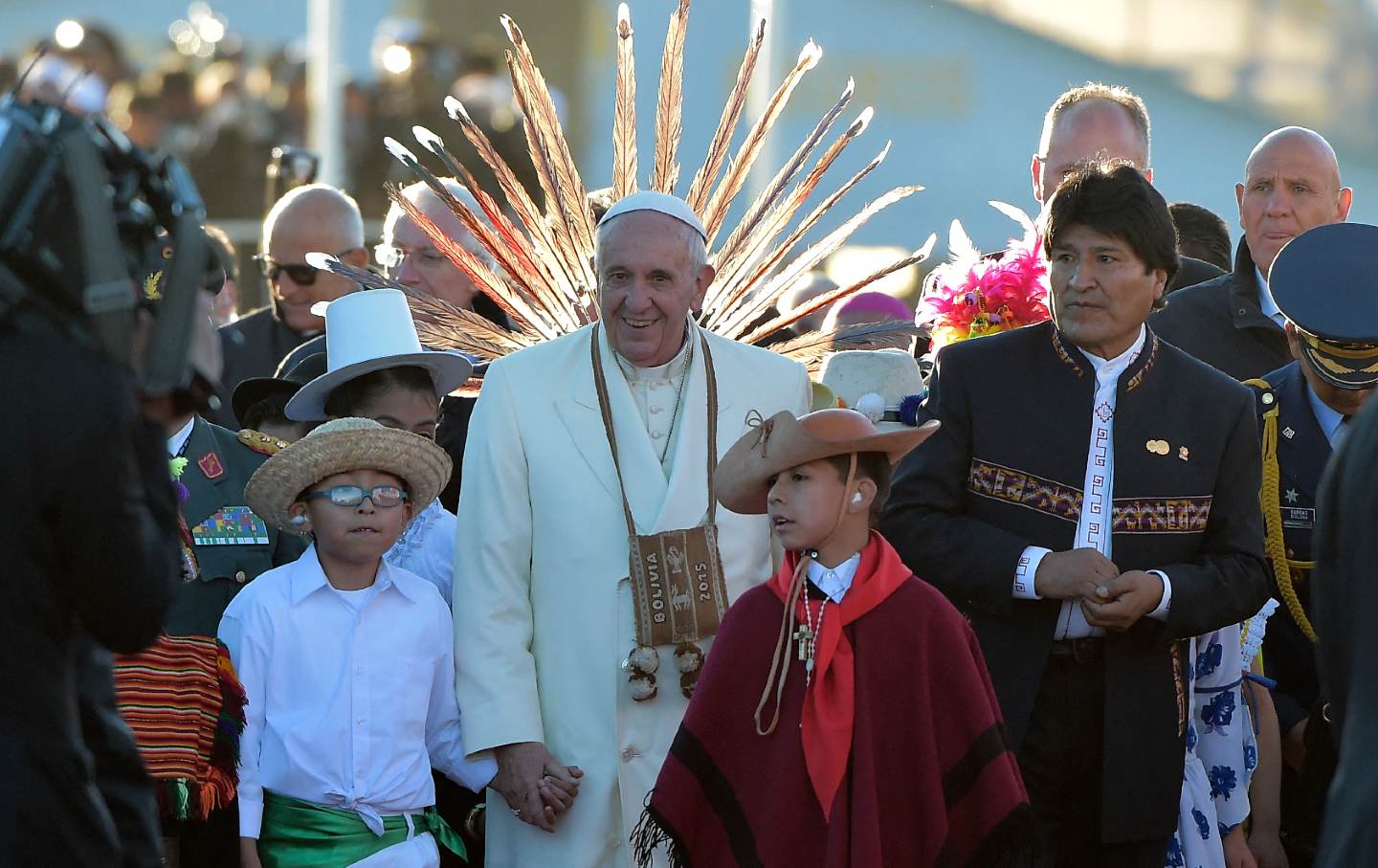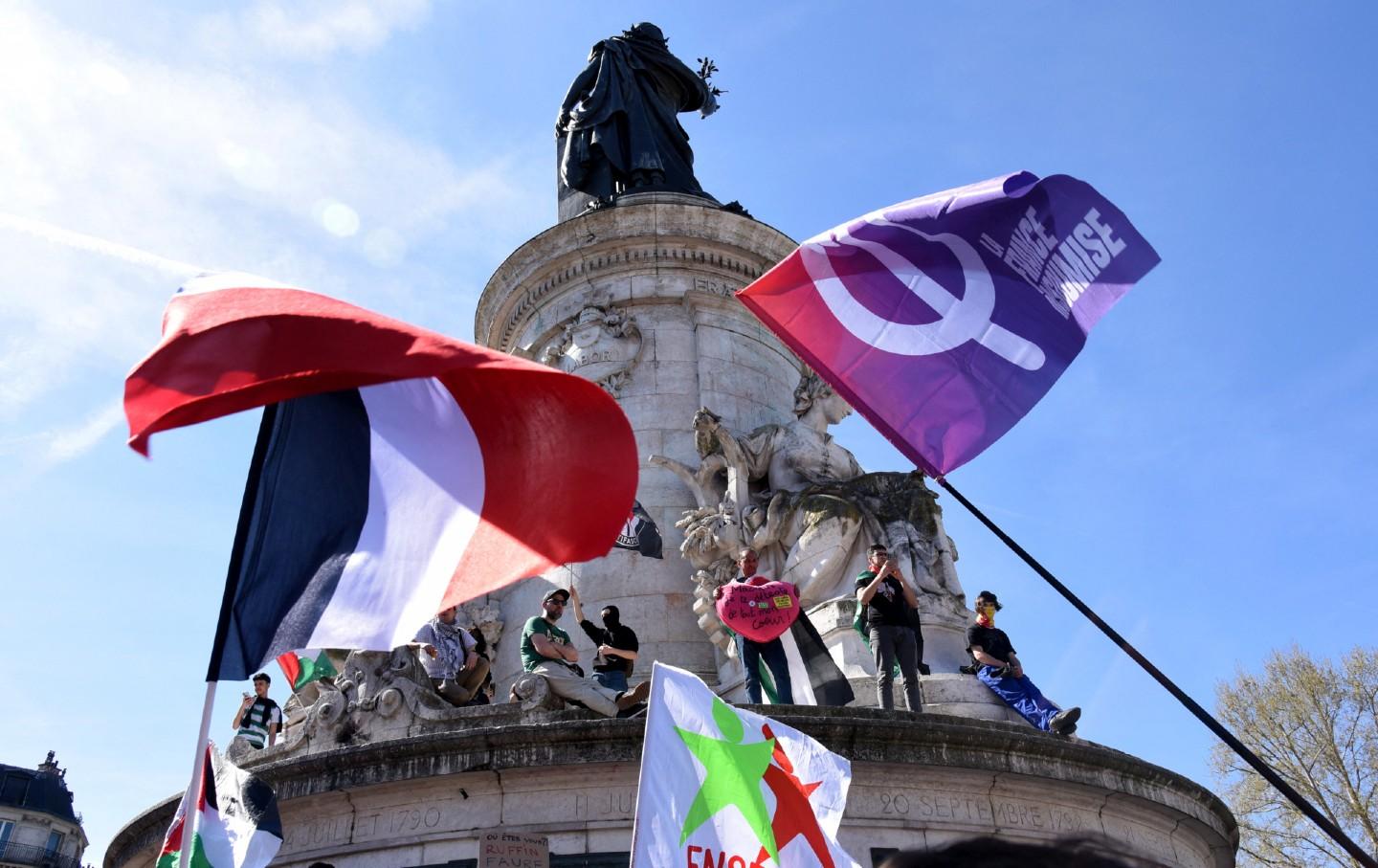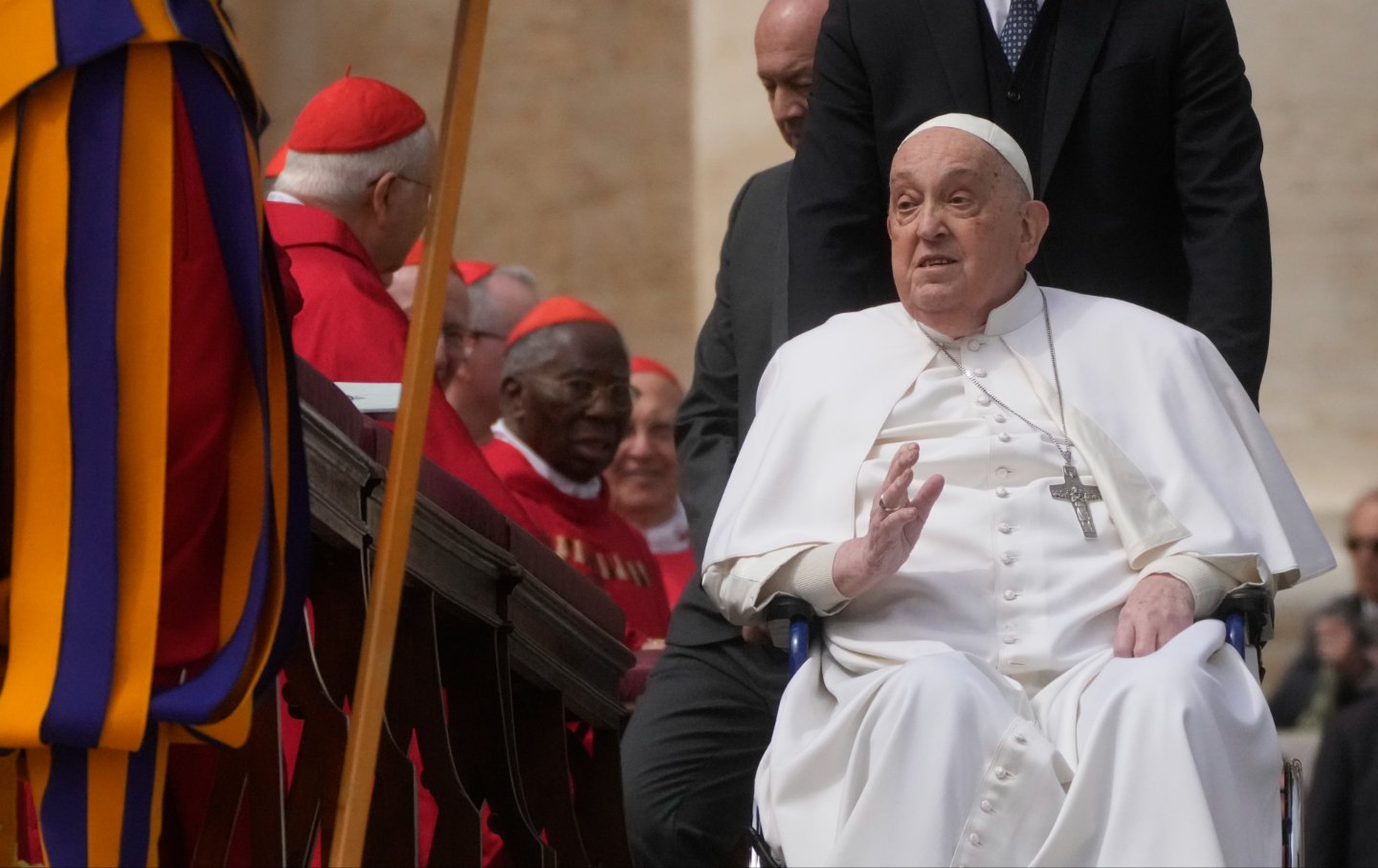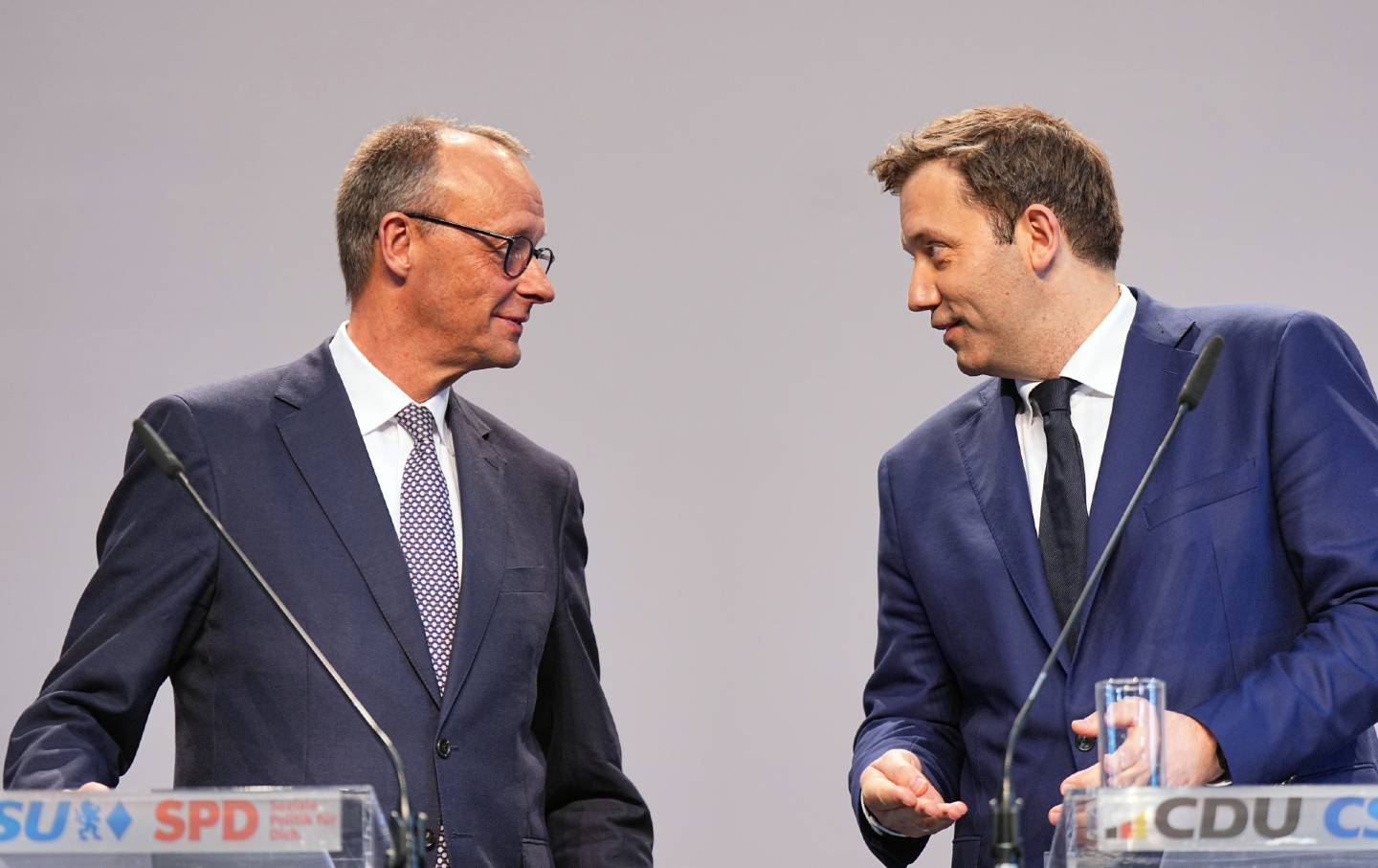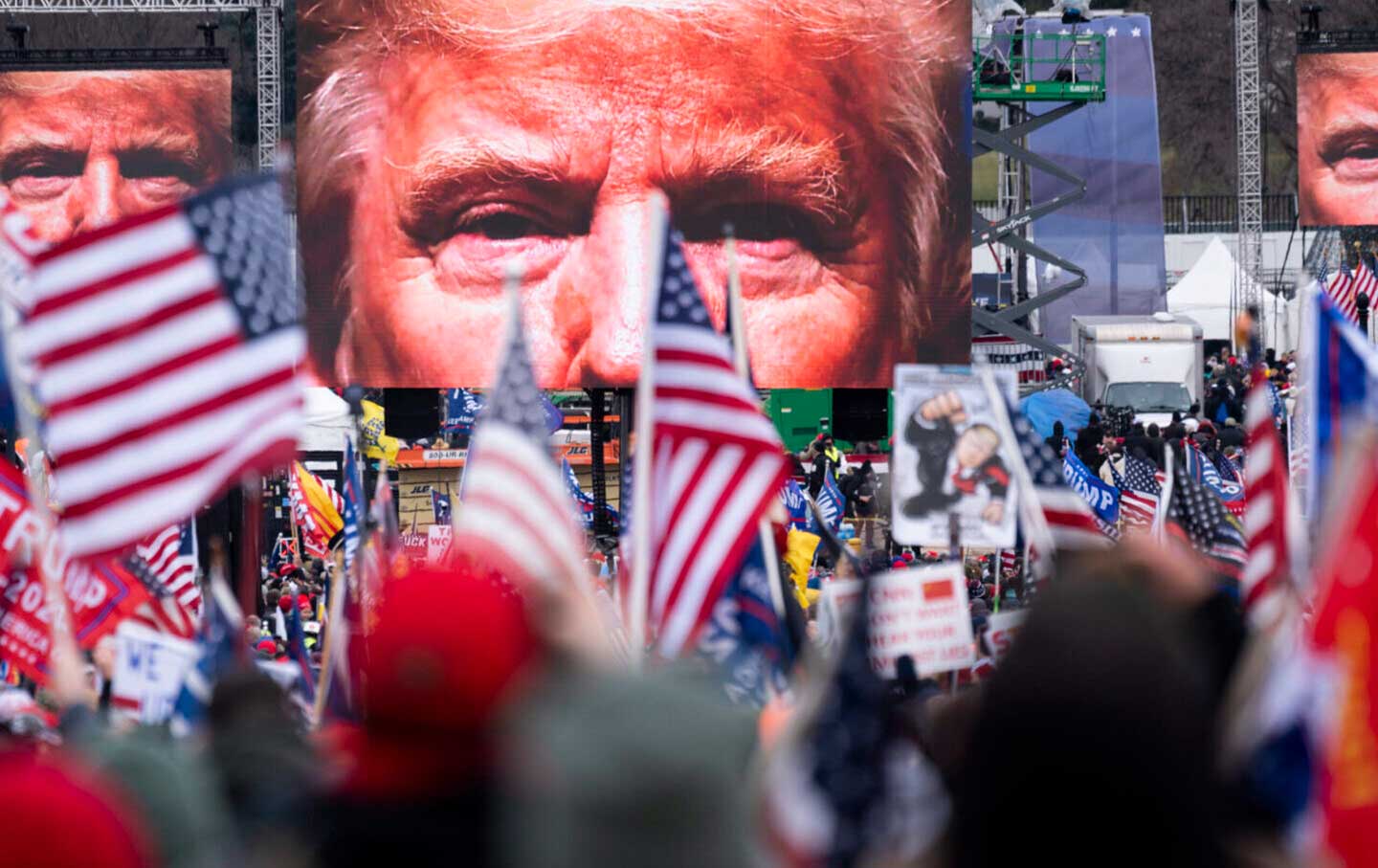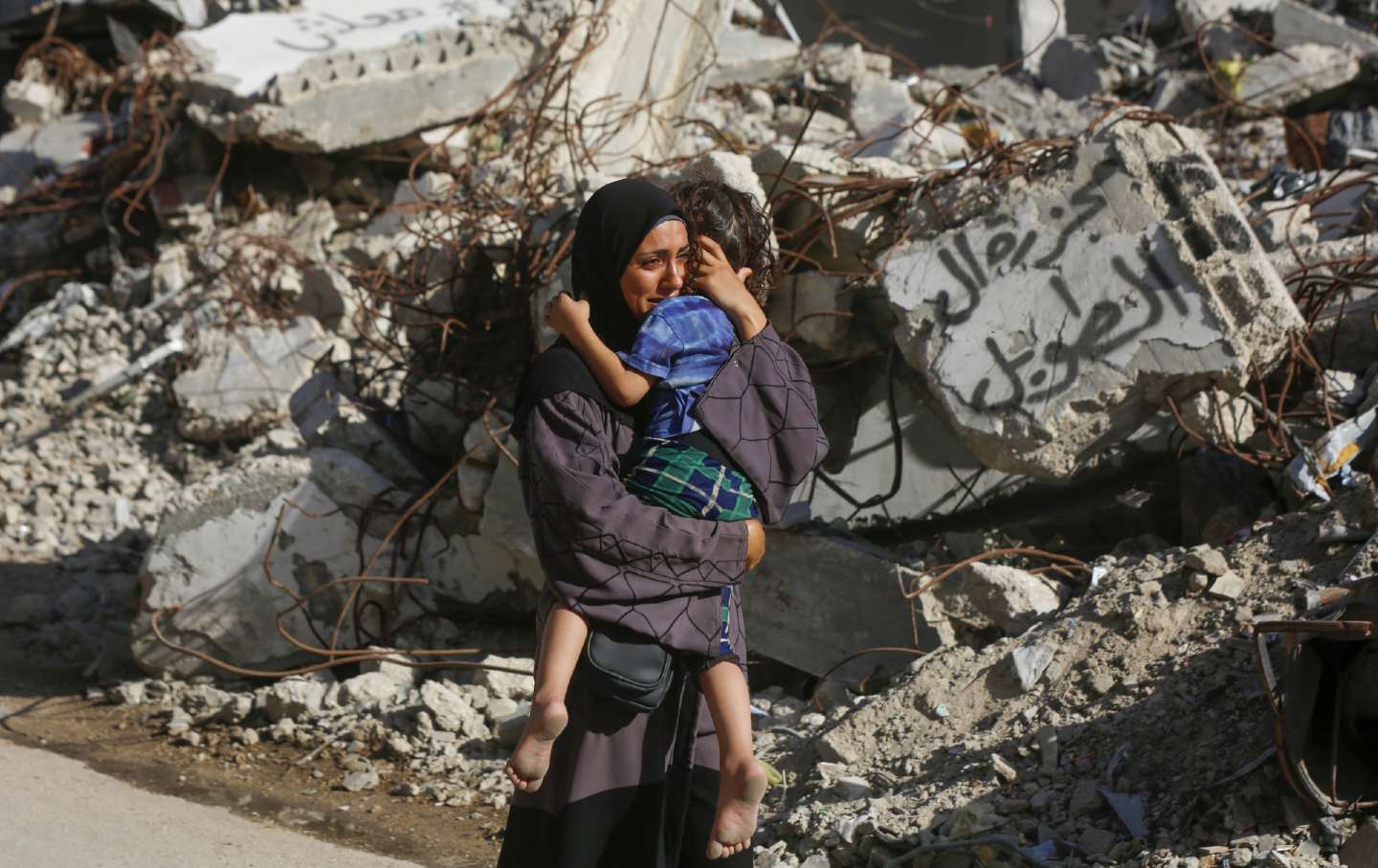To Seek Peace in Ukraine, Remember the End of the Cold War
US-Russia relations once seemed so promising after the collapse of the USSR. An honest look at how they soured can help us understand today’s conflicts.
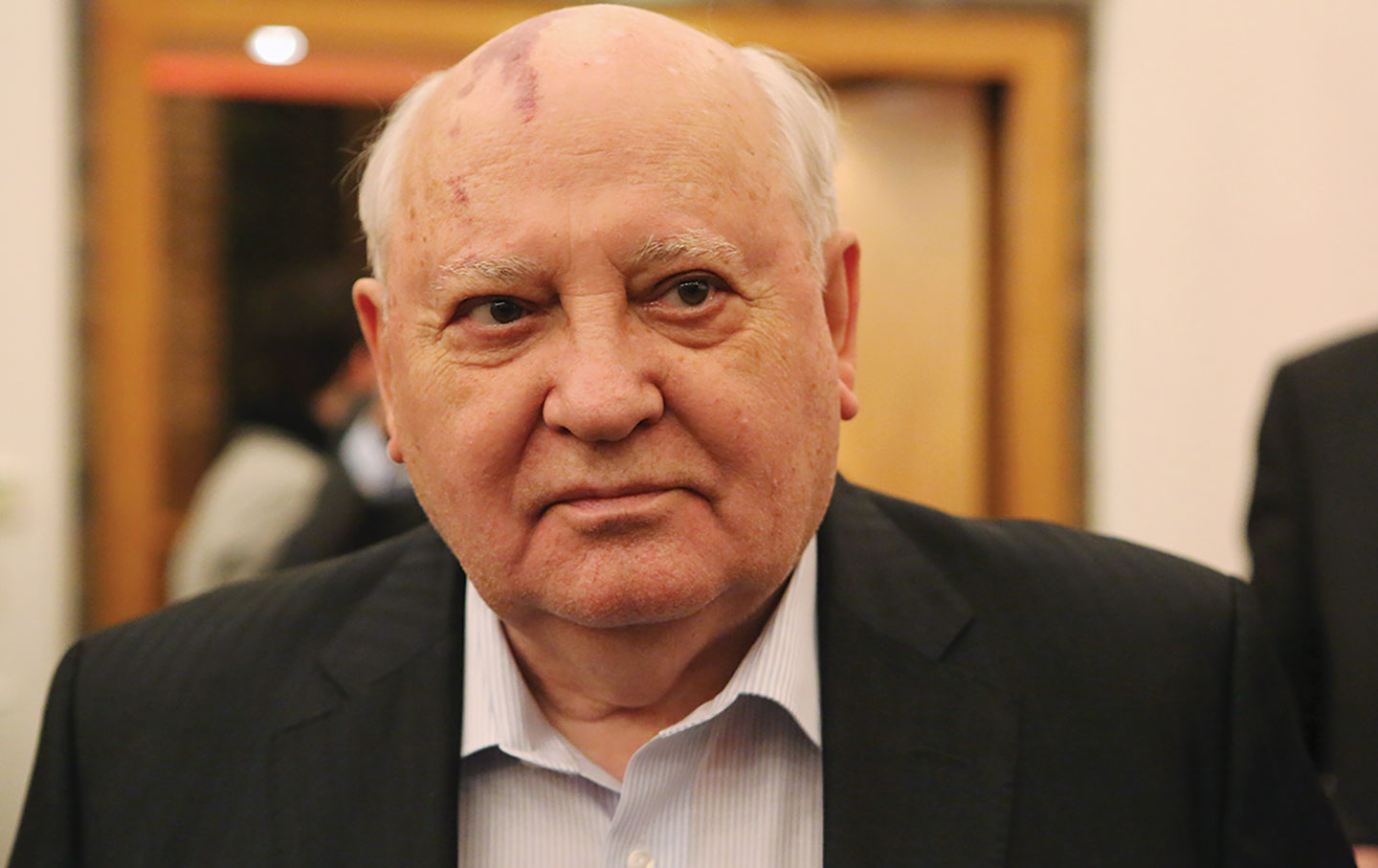
Looking askance: Mikhail Gorbachev saw the expansion of NATO as a betrayal.
(Ralf Juergens / Getty Images)For almost eight decades, Americans and Russians have been schooled to hate each other—a process that has gained massive new impetus as a result of the war in Ukraine, now entering its third year. There was one brief, glorious exception: the last years of Mikhail Gorbachev’s leadership of the USSR and the first years of post-Soviet Russia.
Hopes ran high for a new era of cooperation and friendship between the United States and Russia, and in the world more broadly.
In my case, as a former journalist in South Asia with a background in colonial and postcolonial studies, such hopes were encouraged by the fact that—even given the various conflicts in the Caucasus—the breakup of the Soviet Union was so remarkably peaceful compared with the end of the British, French, Portuguese, Austrian, and Ottoman empires. With the Ukraine conflict, that happy comparison has come to an end.
This brief period was characterized by almost hysterical adulation on both sides. In America, you had “Gorbymania”; in Russia, you had the uncritical fetishization of Western and especially American democracy and culture by most of the intelligentsia, and to a lesser extent by the younger population in general.
However, the love on both sides was really for simulacra of their own imagining, not the actual countries, and these illusions were shared by leading policymakers and supposed “experts” in both nations, such as US Deputy Secretary of State Strobe Talbott and Gorbachev adviser Aleksandr Yakovlev. On the Russian side, there was the belief that despite the catastrophic decline of Russia’s economy, the United States wanted genuine cooperation and would respect Russian views rather than follow its own interests and impose its will.
For their part, US elites believed that Russia would develop quickly as a liberal democracy and that a democratic Russia would automatically assume the role of a Germany or Japan as an obedient client state, albeit without receiving any security guarantees or economic benefits in return, and even if the United States threatened core Russian interests.
The reality was very different. To borrow from the myth of Pygmalion, one might say that the American elites saw themselves as divinely endowed sculptors, awakening Russia with the kiss of capitalist democracy in the belief that she would then lie down and submit to their desires. As it turned out, the form of capitalist “democracy” inflicted on ordinary Russians was a particularly repellent and disastrous one, and a majority of Russians had no intention of submitting passively to dictation from Washington.
As with many ill-advised mutual infatuations, when the honeymoon period was over, the resulting disappointment added to the fervor with which both sides defaulted to the hatreds and suspicions that had become so deeply embedded in their establishment cultures over the decades. By 1997, after almost seven years in the former USSR and a year as a visiting fellow at the US Institute of Peace in Washington, I had become convinced that if US policies and the Russian reaction against them continued, the eventual result would be war.
When it comes to the genesis of the present war, it is important to remember that key aspects of the 1980s and ’90s have been largely obliterated from public awareness in the US and Europe by state propaganda and the mainstream media. If anyone had put forward a strategy back then that involved Ukraine joining NATO and the expulsion of the Russian Black Sea Fleet from Sevastopol, even hawkish Western analysts would have regarded this as insanity and a sure path to war. The way in which the perception of this fantastically dangerous project shifted from insanity to normality—in Washington and London, but not of course in Moscow—is a frightening example of the breakdown of serious and independent strategic analysis in the West, one stemming in part from the decline in even medium-term historical memory.
Another important point concerns the classification of Russia as a “revisionist” and “anti–status quo” power, which has been used to portray it as a mortal threat to the whole of NATO and the EU, rather than as a country mainly reacting to moves by the West. For while the Russian invasion of Ukraine was without doubt an illegal and immoral act of aggression, in terms of wider strategy it is the United States and its European satellites that over the past 30 years have created a wholly new status quo in Europe, and sought to do so in the former Soviet Union. Gorbachev himself, it may be noted, later became a bitter critic of US policy and especially the expansion of NATO, which he regarded as a betrayal of the reconciliation between Moscow and Washington and the dream of a “Common European Home” to which he was devoted.
An honest accounting with history in both Russia and the United States is essential if we are to bring about a lasting peace in Ukraine and escape from the past generation’s spiral of hostility, which could in the worst case become a death spiral for the whole of humanity. Russians need to understand how the imperial and Soviet past, and Stalin’s crimes in particular (together with the more repellent aspects of the Putin regime), have made so many of Russia’s neighbors fearful of any regime based in Moscow, and that the hostility of these countries is not just due to manipulation by Washington. Americans need to acknowledge the crimes committed by the United States during (and after) the Cold War, which make it impossible for most Russians and many people around the world to accept America’s right to lecture them on morality, let alone to dictate their own security policies.
Soviet crimes (at least under Lenin and Stalin) were vastly worse than those of the United States; indeed, their exposure played an important part in the collapse of Communist Party authority after Gorbachev introduced glasnost. Thereafter, however, Russian willingness to acknowledge these crimes was not only greatly inhibited by the creation of the Putin regime, but also by the way in which the memory of these crimes was weaponized by forces in the West and in Eastern Europe to serve their anti-Russian agendas. In particular, the attempt to equate Soviet and Nazi crimes and blame the Soviet ones on Russia and the Russian people caused widespread national outrage, especially given that so many of the victims of communism were Russians, and so many of the perpetrators (including Stalin himself) were non-Russians.
Popular
“swipe left below to view more authors”Swipe →National self-righteousness, buttressed by a refusal to admit national crimes, is a key obstacle to the empathy with other nations’ leaderships that the German American political scientist Hans Morgenthau declared is both a practical and an ethical duty of true statesmanship—the ability and willingness, that is, to place yourself in the shoes of your opposite numbers and understand what really matters to them.
Empathy by no means necessarily implies sympathy or agreement. An empathetic understanding of Hitler’s basic goals, based on a reading of Mein Kampf, would have led British and French leaders to a much earlier determination to fight Nazi Germany. On the other hand, an empathetic understanding of how the Russian leadership understands its country’s vital interests would have prevented the fatuous illusion in the West that Russia could be expected to peacefully accept turning Ukraine into a military outpost of the West and radically downgrading the role of the Russian language and Russian culture there.
If on this basis the decision had still been made to expand NATO and the EU, at least it would have been made with open eyes and an awareness of the likely consequences, and as a result would have been backed both by serious resources and by compromises in other areas (notably in concessions to China).
It is not as if there would be anything intellectually difficult about such an American understanding of Russia, as there is (for example) when it comes to understanding what drives a culturally conservative force like the Taliban; indeed, the hard-realist, great-power premises on which the Russian establishment operates are very close to those of a large part of America’s own security establishment.
Thus, while we cannot say for certain that any future Chinese attempt to create a military alliance in Central America will lead to invasion and conquest by the United States, we can say for certain that it will lead to massive US support for coups, military dictatorships, and the savage repression of dissent, and that these policies will continue until the danger of such an alliance has been eliminated. We know this for certain because this is how America has repeatedly acted in the past.
Any Chinese government contemplating such a move would have to be fully aware of these consequences, and also of the complete and very dangerous collapse of relations between Beijing and Washington. Any Mexican government would have to be aware that whatever its historical grievances against the United States, and whatever its undoubted rights under international law, a Mexico in a state of deep and permanent enmity with the United States could never be truly secure. The same is true of Ukraine and Russia, and this recognition is an essential foundation of the search for a lasting and reasonably just peace in Ukraine. It is very understandable that Ukrainians, invaded and under bombardment, should find this extremely hard to accept. It is therefore the task of US policymakers working at a safe distance to develop the cool-headed objectivity that will allow this recognition; and to develop this objectivity, the first thing they need to do is look in a historical mirror.
Hold the powerful to account by supporting The Nation
The chaos and cruelty of the Trump administration reaches new lows each week.
Trump’s catastrophic “Liberation Day” has wreaked havoc on the world economy and set up yet another constitutional crisis at home. Plainclothes officers continue to abduct university students off the streets. So-called “enemy aliens” are flown abroad to a mega prison against the orders of the courts. And Signalgate promises to be the first of many incompetence scandals that expose the brutal violence at the core of the American empire.
At a time when elite universities, powerful law firms, and influential media outlets are capitulating to Trump’s intimidation, The Nation is more determined than ever before to hold the powerful to account.
In just the last month, we’ve published reporting on how Trump outsources his mass deportation agenda to other countries, exposed the administration’s appeal to obscure laws to carry out its repressive agenda, and amplified the voices of brave student activists targeted by universities.
We also continue to tell the stories of those who fight back against Trump and Musk, whether on the streets in growing protest movements, in town halls across the country, or in critical state elections—like Wisconsin’s recent state Supreme Court race—that provide a model for resisting Trumpism and prove that Musk can’t buy our democracy.
This is the journalism that matters in 2025. But we can’t do this without you. As a reader-supported publication, we rely on the support of generous donors. Please, help make our essential independent journalism possible with a donation today.
In solidarity,
The Editors
The Nation

